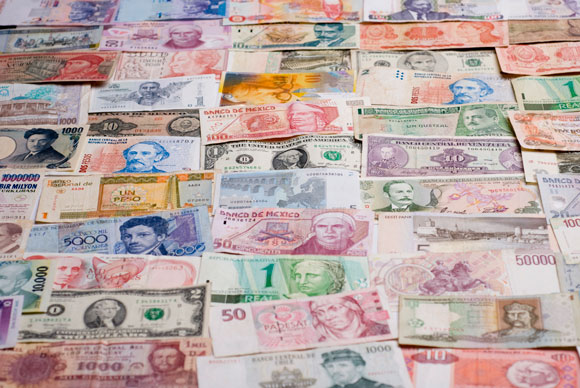As all eyes focused on the equity markets, one easily overlooked development yesterday was the Treasury's 30-year bond auction. Guess which player didn't take part?
As all eyes focused on the equity markets, one easily overlooked development yesterday was the Treasury's 30-year bond auction. Guess which player didn't take part?
China.
To currency maven Axel Merk, China's absence — which may have been a factor in the bonds' 5 point price drop — is indicative of a broader trend that will have serious implications for the average U.S. investor.
“The Chinese and others are becoming more familiar with other sovereign debt — a process that's been going on for several years and will only accelerate,” said the founder of Merk Investments LLC, whose Merk Funds focus on currencies.
Looking at currencies, markets and economies in the long-run, Mr. Merk is gloomy about the U.S. and the dollar and more optimistic about the euro.
“Mr. Bernanke wants to debase the currency because he believes that will benefit U.S. economic growth,” he said.
Inflating away the value of the dollar may be an easier and less painful way to shrink the massive U.S. debt burden than the alternatives — growing ourselves out of the mess or taking huge write-downs and suffering widespread bankruptcies. But the inflation route has a distinctly fall-of-Rome flavor, which could spell the end of the U.S. as the world's super power.
“We can fix our problem once the will is there, but political realities won't allow it,” Mr. Merk said. Unfortunately, he believes that politicians will only listen when the bond market changes its mind. And since the bond market is still showing an appetite for U.S. debt, not much is likely to happen soon, he believes.
By contrast, Mr. Merk believes the euro is a lot stronger than widely perceived.
“Everybody hates it and we like it,” he said. “The euro is one of the least volatile currencies in the world and Europe is implementing real reform. European policy makers may hate what the markets are telling them to do, but they're doing it.”
In Japan, “the more dysfunctional the government, the stronger the yen,” he said, explaining that the Japanese have a current account surplus, unlike the U.S., and — also unlike the U.S. — they finance their deficit through internal savings.
“That's positive for the currency, which is why we've been increasing our yen exposure,” he said.
So what does a weaker dollar and gyrating world currencies mean for the typical U.S. investor?
“One of our themes is that there's now no such thing as a safe asset,” Mr. Merk said. “There's no single place to hide and the one clear thing we've learned in recent months is that the U.S. dollar is not risk-free.”
As a result, he believes that “if you're a good old-fashioned saver you'll lose out.”
Notwithstanding the fact that Mr. Merk operates unleveraged mutual funds that invest in currencies (largely through short-term government securities), he believes that American investors should make currencies part of their asset allocation.
“Some Swiss pharmaceutical companies now pay their employees in euros, so they are not so concentrated in Swiss francs,” he said. “In the same way, U.S. investors shouldn't be overexposed to the dollar. I'm not worried about the hedge fund manager; I'm worried about the retiring grandma.”







